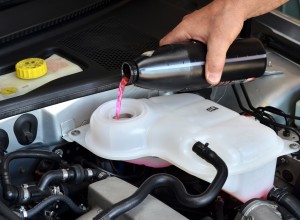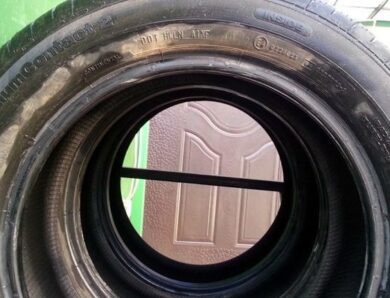Oil pressure in a diesel engine: what you need to know
It is well known, which is one of the most effective ways to prevent dry friction between surfaces, as well as to remove excess heat, there is a supply of special lubricant on the friction surface.
Internal combustion engines use engine oil for these purposes, which has protective, antifriction, detergents and many other useful properties.
As in gasoline, and in the diesel engine oil to many parts and components, experiencing heavy loads, served under a certain pressure. The specified pressure must be constant. The rest of the parts are lubricated by spray or gravity.
In this article we will talk about that, what oil pressure in the diesel engine is the norm, and for what reasons the oil pressure in the lubrication system of the diesel engine may decrease.
Low oil pressure in a diesel engine: main reasons
Let's start with that, that the diesel engine differs slightly from the gasoline in the method of ignition of the fuel-air mixture.
The fuel in such an engine is ignited by strong compression. For this reason, diesel is heavier than gasoline counterparts, parts of such an internal combustion engine are made of stronger materials.
Quite obviously, what a motor (even with that in mind, that it is less heat-loaded and less agile), still experiences heavy loads during operation. This means, that one of the most important indicators of the general condition of the unit is the oil pressure in the diesel engine.
Moreover, if the pressure in the diesel lubrication system has dropped, then such a fault will quickly disable the power unit. First of all, to reduce the pressure will indicate that, burning oil pressure lamp at that moment, when the diesel engine is idling and / or under load. Extraneous sounds may also be noted, the unit works more "hard" and noisy.
so, back to the reasons, which reduces the oil pressure in the diesel engine.
- Let's note at once, that quite often the oil pressure drops due to that, that the oil level is low. The oil level must be measured correctly to check, taking into account the features of measurement on cold or hot internal combustion engines. The machine must be installed on a level horizontal surface, then get an oil dipstick.
If the level falls below the "minimum" mark, then the oil must be topped up. You need to remember, that oils from different manufacturers, and also differ in their properties, mixing is not recommended. If the emergency light goes out after topping up, then everything is fine.
You should also inspect the engine and bonnet space, look under the car. If there are obvious leaks through the seals, gaskets and other seals, the problem must be solved immediately.
- The second moment, to which you need to pay attention, this is a decrease in pressure due to too strong resistance of the oil filter.
This can happen if you use the wrong model of the filter itself, marriage of the product or breakage of the pressure reducing valve in the filter. It is advisable to immediately replace the oil filter with a deliberately serviceable one.
- The next reason is a strong liquefaction of engine oil or a significant loss of lubricant properties. Often it is most appropriate to talk about getting antifreeze into the lubrication system, as well as the accumulation of large amounts of fuel in the oil.
Usually, if the fluid from the cooling system is in the oil system, right in the cylinder head gaskets. Cracks may also appear in the cylinder block or cylinder head. Often the oil level rises in this case, while in the expansion tank the coolant level is reduced. An emulsion is also visible under the oil filler cap, the engine begins to smoke white smoke, etc.. d.
Getting fuel often happens in the case, when the mixture does not burn in the engine. Usually, in this situation the engine triples, that is, one or more cylinders do not work, and part of the fuel flows through the piston rings into the crankcase. The injectors may still be leaking, which "pour" diesel fuel even after stopping the engine.
- Next you need to check the oil pump. A significant reduction in its performance or breakdown leads to this, that the pressure in the oil system is low or non-existent. Usually the oil pump can get dirty, however, the possibility of its failure should not be ruled out.
It is also necessary to check the pressure reducing valve of the oil pump and the oil pan grid, which is clogged with deposits, as a result the oil pump is not capable to create the necessary pressure and to pump oil in the engine in full. Anyhow, but the crankcase tray must be removed, to pinpoint the cause and eliminate it qualitatively.
Reducing oil pressure in diesel engines with mileage
For older diesels, the main cause of low oil pressure in the lubrication system is the natural wear of the engine. In this case, the gaps between the parts increase too much, and the oil pump is no longer able to compensate for the effects of such wear and create the necessary pressure.
Usually, the operation of the engine in this case is accompanied by a knock, metal shavings can be observed in oil, etc.. d. In such a situation, you can normalize the oil pressure only by repairing the engine.
We also recommend reading the article about it, how to check and measure engine oil pressure. You will learn from this article, what should be the pressure in the lubrication system, and what are the existing methods for measuring the oil pressure in the engine oil system.
- We will add, that low oil pressure may be the result of using the wrong type of oil for a particular engine in terms of viscosity-temperature characteristics. Filling of counterfeit leads to similar consequences (fake) product, etc.. d.
It is also important to consider, that the use of rinses before changing the oil in some cases is the reason, peeled off the walls, but at the same time undissolved deposits in the pan clog the oil pan grid and narrow oil channels.
At the same time, that fact must be taken into account, that the pressure in the oil system may be all right, and the ignition of the hazard warning light on the instrument panel is the result of a failure of the oil pressure sensor. For this reason, at the initial stage it is better to determine immediately, what is the oil pressure in the diesel. This must be done with a special separate device, which is screwed in instead of the standard sensor.
Tips
First of all, the above information clearly indicates that, that the quality of the engine oil and the general condition of the lubrication system directly affects the pressure of the lubricating fluid in the oil system. It should be taken into account, that the service life of diesel oil is less compared to oil for gasoline counterparts.
In other words, it is necessary to choose the right oil for the diesel engine, and change more often as oil, and oil filter. Example, cheap mineral oil with mileage loses its properties much faster than synthetics. Also in diesel it is necessary to refuse use of universal products like gasoline / diesel. Only diesel oil should be added to the diesel engine.
Still to be considered, that the properties of the oil are greatly affected by the quality of the fuel, as well as the state of the power system. Defective nozzles, as well as the presence of impurities in diesel fuel leads to that, that a large number of foreign fractions and products accumulate in the oil. As a result, there is an accelerated loss of the claimed properties.
If the motor has more mileage 100-150 thousand. km, then it is not necessary to use low-viscosity oils in such internal combustion engine. Optimally everyone 100-120 thousand. km. make the transition to a more viscous oil compared to that, which was flooded before. During the transition, additional flushing of the diesel engine is performed.
We also recommend reading the article about it, why the oil pressure lamp is idling. In this article you will learn about the possible and common causes of fire emergency oil pressure lamp in the engine at different modes of operation of the engine.
Finally, note, that in parallel it is necessary to monitor the condition of the crankcase ventilation system, as failures in its operation can also lead to certain problems with the oil itself and the oil pressure.
For a comprehensive inspection and assessment of the state of the internal combustion engine is best to conduct computer diagnostics of the engine and its systems at each scheduled. Any deviations and failures can also be considered as a basis for unscheduled inspections, which the driver may notice during operation of the power unit (power loss, triplet, smoking, knocks, forests, oil pressure lamp ignition, etc.. d.).




